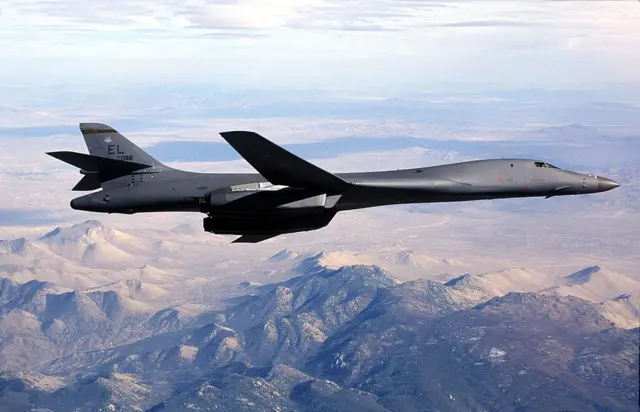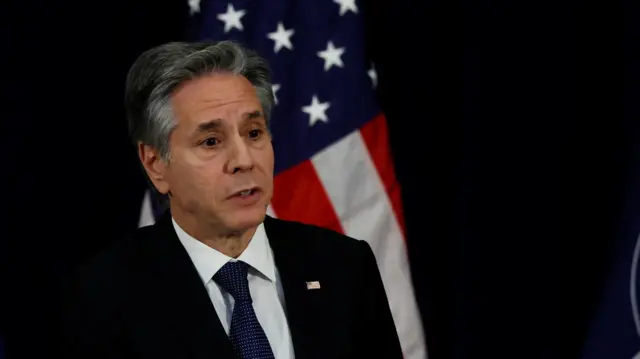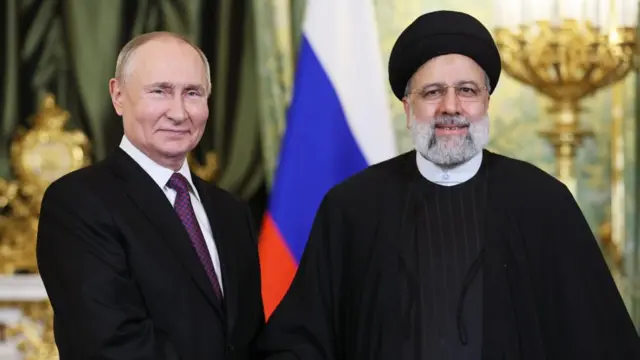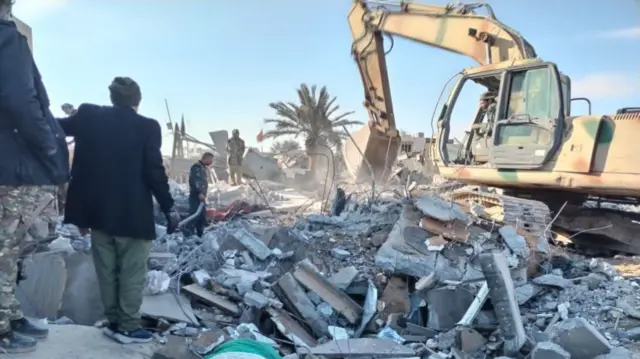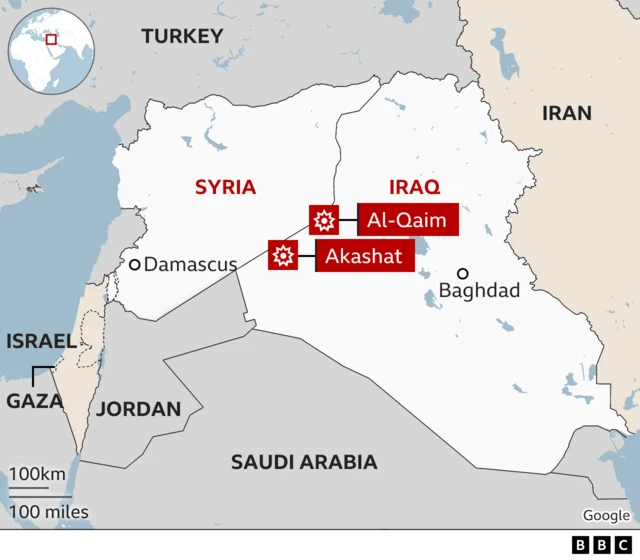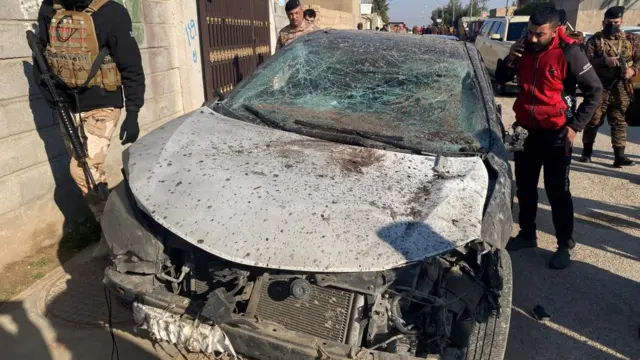US and UK launch new strikes in Yemenpublished at 21:34 GMT 3 February 2024Breaking
New strikes by the UK and US against Houthi targets in Yemen are currently underway, US officials tell CBS, the BBC's US partner.
These are in addition to the “self defence” strikes against Houthi cruise missiles that the US announced earlier on Saturday.
Those earlier strikes targeted six anti-ship cruise missiles that were preparing to launch at ships in the Red Sea, as we reported in an earlier post.
This is the third round of joint strikes conducted by the US and UK.
Stay with us.

